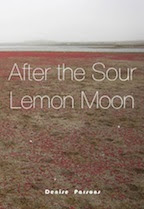My herbs are waiting for me to throw some pots for them and track down some gravel to cover the soil. I was told the little flies that hover around potted herbs will go away if I cover the soil in a thin layer of gravel. I've only spotted one of these little flies so far, but I better find some gravel before more decide to come to the party. For now, my herbs will remain topless and in their plastic containers. They have moved from the kitchen table to the bay window and are sunbathing for as many hours per day as possible.
tags:
ROSEMARY 'Barbeque'
So-called because the stems are long and hard, perfect for bbq skewers.
Full sun, low water when established, DEER PROOF.*
*I learned while in Point Reyes that one cannot guarantee that any plant is DEER PROOF.
WINTER SAVORY (Satureja montana)
Shrubby perennial herb used for flavoring, like sage.
Full sun, moderate water. To 1ft. tall, pretty flowers too!
THYME 'Big Leaf'
Vigorous, great tasting thyme to 1' x 1'.
Good in pots. Full sun, reg. water.
OREGANO-ITALIAN MILD
Selection from Franchi Sementi of Italy.
Milder Italian Oregano, very versatile! Perennial, full sun, great in pots.
BASIL (simply labeled 'Live Basil')
I made a mistake in my last post, 4 pots of herbs were bought from one gentleman and 1 pot from another. The basil was the 1 pot from another and it started slumping over and looking unhappy almost immediately (within hours of purchase!). Even the stems started turning brown. I decided to just pull all of the still perky leaves from the plant, made a neat chiffonade, and sprinkled it atop our dinner of pasta with fresh English peas and grated Parmigiano Reggiano. We were not disappointed.
Finally, the last item on the table is a vase of bright yellow Ranunculus (Persian Buttercups).
wikipedia says:
The term sardonic (sardanios), "bitter or scornful laughter", is often cited as deriving from the name of the Sardinian plant Ranunculus sardous, known as either σαρδάνη (sardanē) or σαρδόνιον (sardonion). When eaten, it would cause the eater's face to contort in a look resembling scorn (generally followed by death). It might also be related to σαίρω (sairō) "I grin".
and they look so sweet and innocent...
carrots coming soon!
tags:
ROSEMARY 'Barbeque'
So-called because the stems are long and hard, perfect for bbq skewers.
Full sun, low water when established, DEER PROOF.*
*I learned while in Point Reyes that one cannot guarantee that any plant is DEER PROOF.
WINTER SAVORY (Satureja montana)
Shrubby perennial herb used for flavoring, like sage.
Full sun, moderate water. To 1ft. tall, pretty flowers too!
THYME 'Big Leaf'
Vigorous, great tasting thyme to 1' x 1'.
Good in pots. Full sun, reg. water.
OREGANO-ITALIAN MILD
Selection from Franchi Sementi of Italy.
Milder Italian Oregano, very versatile! Perennial, full sun, great in pots.
BASIL (simply labeled 'Live Basil')
I made a mistake in my last post, 4 pots of herbs were bought from one gentleman and 1 pot from another. The basil was the 1 pot from another and it started slumping over and looking unhappy almost immediately (within hours of purchase!). Even the stems started turning brown. I decided to just pull all of the still perky leaves from the plant, made a neat chiffonade, and sprinkled it atop our dinner of pasta with fresh English peas and grated Parmigiano Reggiano. We were not disappointed.
Finally, the last item on the table is a vase of bright yellow Ranunculus (Persian Buttercups).
wikipedia says:
The term sardonic (sardanios), "bitter or scornful laughter", is often cited as deriving from the name of the Sardinian plant Ranunculus sardous, known as either σαρδάνη (sardanē) or σαρδόνιον (sardonion). When eaten, it would cause the eater's face to contort in a look resembling scorn (generally followed by death). It might also be related to σαίρω (sairō) "I grin".
and they look so sweet and innocent...
carrots coming soon!


No comments:
Post a Comment